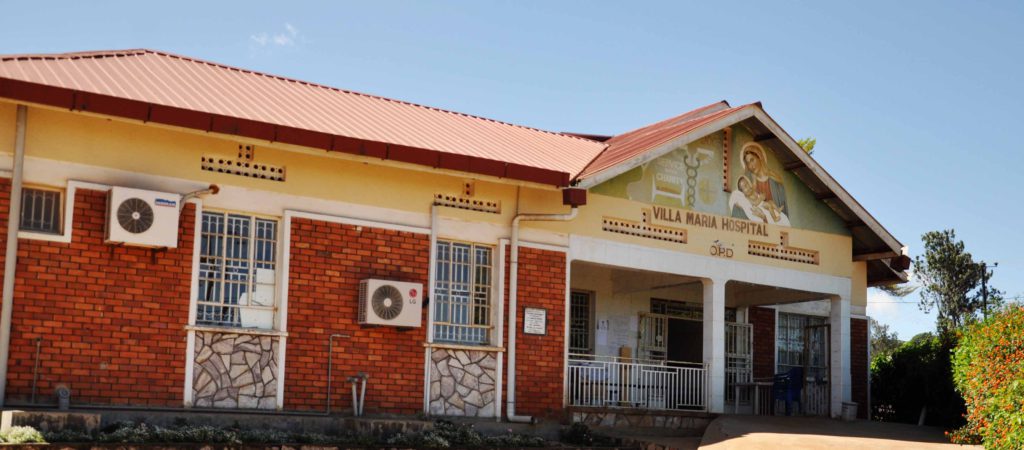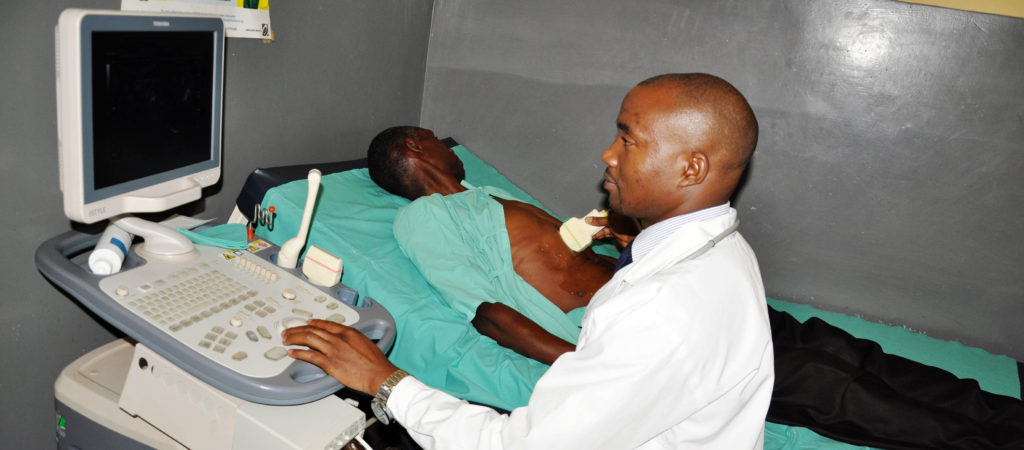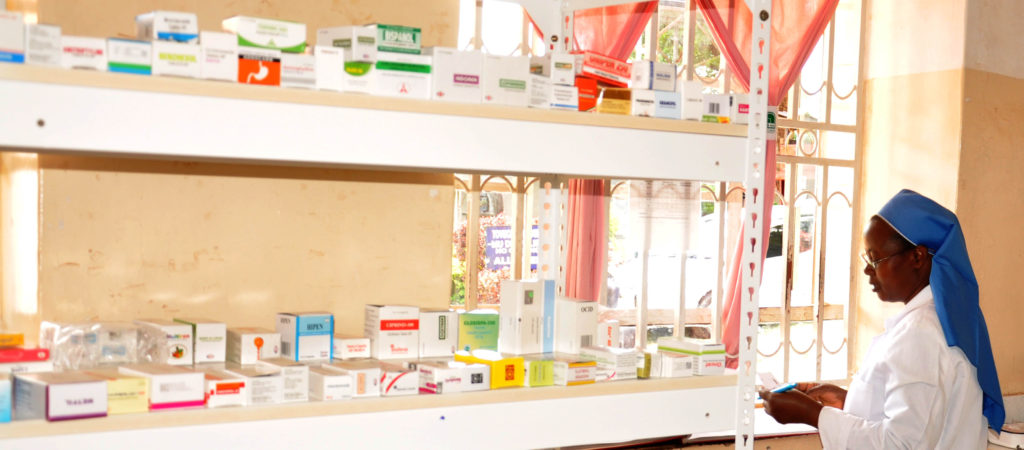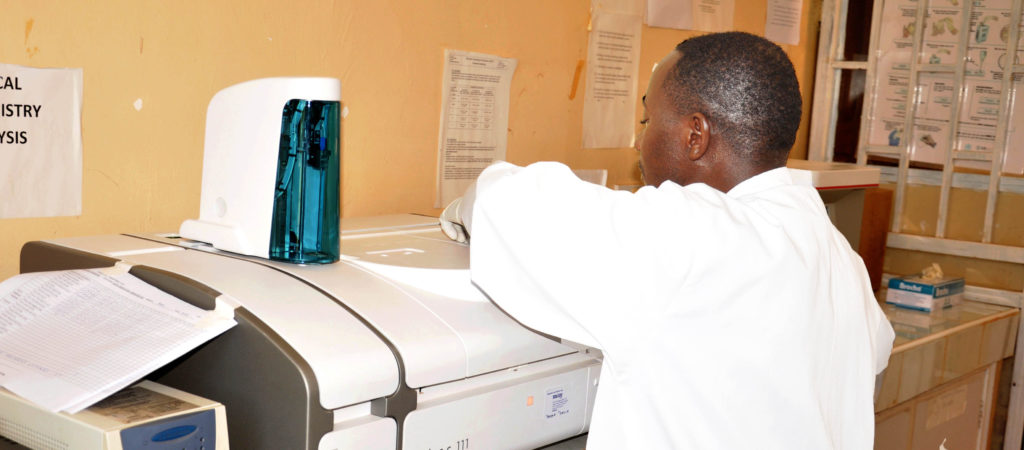
Villa Maria HospitalProviding integrated, holistic services
Villa Maria Hospital is a regional hospital with 125 beds that provides health care for an area of 60 × 80 km, in which 90,000 people live. It has been around since 1902, and therefore has a long history .
Five doctors, senior nurses and one hundred and fifteen MBO and HBO trained nurses work at the Villa Maria Hospital. There is also a large support staff. The Villa Maria Hospital has an outpatient clinic with a pharmacy and laboratory, a children’s, men’s and women’s room, an operating room, a maternity clinic and an AIDS clinic. The hospital provides mother and child care in the region with vaccination programs and regularly visits five outposts.
Approximately 4200 people are admitted per year. The population that is dependent on the hospital is very poor. Many patients cannot afford the treatment and costs of admission. The outpatient clinic is visited by more than 12,000 people a year. Around 1,200 women give birth in the maternity clinic, 590 of them by caesarean section. What is striking is that the number of women admitted to hospital for childbirth has fallen over time, but the number of caesarean sections has increased. A part-time gynecologist is now working in the hospital.
Since 2002, a surgeon has been associated with the hospital and the training has been paid for by Weeraba. Surgery is often life-saving. 680 large and 500 smaller operations are performed each year, excluding the caesarean sections.
In addition, 4500 AIDS patients are supervised and treated from Villa Maria. This also includes programs for the care of AIDS orphans and other vulnerable children. Families of Aid patients are helped through mutual savings and loan groups to build up a modest family budget.
Contact
Villa Maria Hospital, Masaka
P.O.BOX 32, Masaka
Emergency Ambulance:
256751 274243 / +256788 900484
Email: info@villamariahosp.org
Management Team
Dr. Ssemwanga Edward
Chairperson / CEO
Mr. Ssenabulya Davis
Member / Coordinator Home Care Program
Sr. Nabasinga Carol
Principle Nursing School
Sr. Stella Nabugwawo
Hospital Administrator
Last Updated July 2019
Prevention of HIV spread through behaviour change, (Abstinence and being faithful), Prevention of mother to child transmission (PMTCT), HIV Counselling and testing (HCT), Safe Male Circumcision (SMC), Injection safety and Post exposure prophylaxis (PEP) and DREAMS intervention.
Mitigation of Impact of HIV including medical care and treatment, psychosocial welfare services including support to orphans and vulnerable children (OVC) and savings and internal lending communities’ methodology (SILC).
Community systems strengthening that would respond to the impacts of the disease.
Institutional capacity building that supports the development of effective internal systems/capacities to sustain holistic development among partner communities and institutions.
St. Lawrence, School of Nursing and Midwifery is an integral part of Villa Maria Hospital. The school has developed a national reputation for offering quality education programmes and undertaking innovative move in evidence-based nursing client/patient care that is shaping the health care agenda in Uganda.
It started with a group of 17 girls who were admitted to embark on a Nurse Aid Programme in September 1982. Two years later, 26 students who had completed their O’ Level studies were registered for the Enrolled Nursing Training as a diocesan mission of training health workers for Masaka health units and beyond. The school has produced a total of 711 graduates since its inception.
Today St. Lawrence, School of Nursing and Midwifery is under the guidance of both the Uganda Nursing Council and Uganda Nursing and Midwifery Examination Board (UNMEB).
Vision
Our vision is to equip PNFP and national health institutions with nurses and midwives of high morals and professional standard. Nursing and midwifery practice are rooted in compassion, with such vision the school endeavours to draw from the extensive knowledge and care experiences laid down in the curriculum to provide the nation with qualified nurses and midwives of the highest quality. Therefore the two curricula help the teaching staff to creatively design health related programmes and services that will ensure quality through advocacy, policy-making, service management, education and case studies.
Mission:
Increasing the number of health-workers from minority groups and in undeserved areas. Enabling the mother hospital and diocesan health units to increase in the numbers of qualified nurses and midwives. Promoting the school philosophy which guides us to take the patient/client as the primary focus of the student nurses and midwives. Seeking to make a major contribution to evidence-based and high quality health care by seasoning the mission with the four fundamental aims of Nursing/Midwifery:
- Promoting wellness
- Preventing illness
- Restoring health
- Facilitating coping



Contact us at the Masaka Diocesan Medical Services (MDMS) office nearest to you or submit a business inquiry online.
Masaka Diocesan Medical Services (MDMS) really helped us achieve our financial goals.

